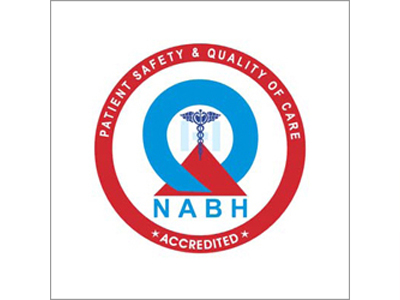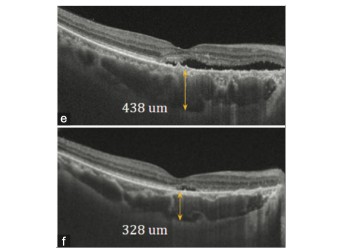In a new study from LVPEI, Drs. Umesh C. Behera, Anand S. Brar, and others demonstrated that intravitreal dexamethasone implants could be an effective treatment for chronic central serous chorioretinopathy, an ocular condition in which a fluid overload in the retina may lead to vision loss.
Central serous chorioretinopathy (CSC) is an eye condition that affects working-age adults. In this condition, the choroid, a vascular bed encapsulating the retina, the visually sensitive layer of the eye, turns abnormal and accumulates fluids, distorting vision. CSC is usually self-resolving, but chronic cases can permanently damage the retina, leading to vision loss. Treatment involves beaming thermal lasers on to leaks identified with angiography. However, laser photocoagulation can lead to complications like permanent scarring and abnormal blood vessel growth in the area. Photodynamic therapy (PDT) is another treatment option, where a photosensitizing dye (Verteporfin) injection precedes a low-intensity laser which re-models the leaky vessels in the choroid. Then again, the cost and availability of verteporfin, and risk of choroidal complications make PDT a less-than-ideal treatment.
Our current understanding of the disease suggests that a thicker sclera (the outer layer) obstructs blood outflow from the choroid and the pressure widens blood vessels downstream. These congested and dilated blood vessels cause a fluid overload and induce a low-intensity inflammation in the choroid. This innate immune response, induced and maintained by pro-inflammatory cytokines, causes the choroidal vessels to leak fluid and worsen the condition. Controlling this inflammation could help manage CSC. Dexamethasone (DEX), an anti-inflammatory corticosteroid, has shown promise when injected deep into the eye, although corticosteroids are believed to trigger CSC in a small subset of patients.
In a new study published in the Indian Journal of Ophthalmology, Drs. Umesh C. Behera, Anand S. Brar, and others from LVPEI have tested the efficacy and safety of an intravitreal DEX implant in chronic CSC within a larger patient cohort. The study included 20 patients (20 eyes) with CSC. The median duration of the disease among the patients was 23.5 months. The team determined the efficacy of DEX by looking at reductions in central macular thickness (CMT) and subfoveal choroidal thickness (SFCT), indicators of fluid leakage.
A single DEX injection reduced CMT in 90% of patients. Within 3 months of injections, over half (55%) of patients had no fluid accumulation under and inside the retina. Visual acuity improved in 60% of patients. DEX injections had limited side effects. Around 30% of patients had elevated intraocular pressure, which was managed using topical pressure lowering agents. However, CSC recurred in half of the patients after three months, requiring additional DEX injections. The study showed that DEX injections could be a promising new angle to treat CSC, but the treatment needs further testing before it can be offered as a standard of care.
'By convention, corticosteroids are avoided in the management of CSC, fearing either precipitation or worsening of existing CSC,” says Dr Umesh Behera, consultant ophthalmologist at LVPEI’s Mithu Tulsi Chanrai Campus, Bhubaneswar. “Our study proved that use of an optimized dose of corticosteroids could work in favor of disease resolution. This new treatment option will open new research opportunities for topical or suprachoroidal modes of drug delivery.'
Citation
Behera, U. C., Brar, A. S., Kelgaonkar, A., Sahoo, J., Narayanan, R., & Sadda, S. R. (2024). Efficacy of dexamethasone implant in the management of chronic central serous chorioretinopathy without choroidal neovascularization. Indian Journal of Ophthalmology. Advance online publication. https://doi.org/10.4103/IJO.IJO_626_24
Photo credit: Portion of figure 2, Behera et al.



